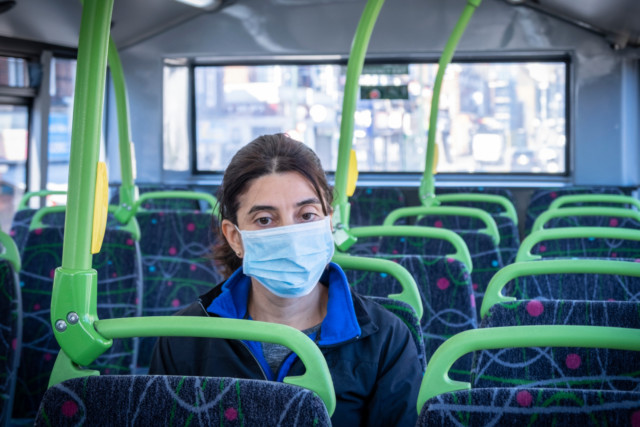BRITS can no longer claim statutory sick pay (SSP) on the basis that they’re shielding.
From today, August 1, those who are protecting vulnerable family members will be expected to return to work.
UK workers are being expected to return to their jobs from today
Workers can still receive SSP if they’re self-isolating because of coronavirus symptoms.
Along with statutory sick pay, the government has also pulled certain support packages, such as food parcels for at-risk households.
Health Secretary Matt Hancock confirmed shielding was being “paused” in a press conference update on June 23.
However, he said it could be brought back for some groups if necessary.
Around two millions Brits were shielding at the end of June.
Speaking at the time, Mr Hancock said: “We’ve taken this decision based on clinical advice on the safety of being able to go back to work.
“We’ve extended the shielding programme until the end of July and then it will be paused.
“I use ‘paused’ very deliberately, because the list will continue and should the clinical advice be that we need to bring it back in, then that’s what we’ll do.”
What is statutory sick pay (SSP)?
If you’re too sick to work, you may qualify for SSP from your employer.
To qualify for sick pay, you must work for an employer and earn on average at least £118 per week (£6,136 per year).
The weekly rate for statutory sick pay is £95.85 for up to 28 weeks, although most employers will pay more than this.
From April 16, employers were told to start paying sick pay to those who were shielding from the first day an employee was off work.
Businesses didn’t have to pay any money for someone who was shielding before this date.
Boris Johnson has confirmed that people who qualify for SSP and have to isolate due to coronavirus can get paid from day one.
Previously, you would have needed to be off sick for four days in a row to get SSP.
You won’t qualify if you’re already received the maximum amount of pay – which is 28 weeks.
You also won’t qualify if you’re getting Statutory Maternity Pay.
Can I refuse to go back to work?
If you’re concerned about returning to work, you should speak to your boss straight away to discuss your options.
Businesses should ultimately still support your decision to work from home if you can continue to do so.
However, employers do still have the right to tell you where they’d like you to work.
If you ultimately decide not to go in and your boss fires you, you may have grounds to bring an unfair dismissal claim to an employment tribunal, according to Michael Newman, partner at law firm Leigh Day.
Who is exempt from returning to work?
You’ll only be exempt from returning to work if you’re showing symptoms of coronavirus.
In this scenario, you should self-isolate for at least ten days and you shouldn’t go to work or even leave your home.
See the NHS website for more on what to do in this situation.
If you still don’t feel safe returning to work, speak to your boss as soon as possible to discuss your options.
If you’re pregnant, for example, charity Citizens Advice says your employer has a responsibility to make changes to your job so it’s safe for you to keep working.
It’s also worth raising your concerns to your boss if you have a health condition or you’re over 70.
Dame Gillian Guy, chief executive of Citizens Advice, told HOAR: “Many people in the shielded group will have mixed emotions about the latest government guidance.
“Some will feel worried about whether their workplace will be Covid-secure, particularly if they are in a frontline role or need to travel to work on public transport.”
Employers must follow new coronavirus guidelines to keep workers safe.
We’ve rounded up everything you need to know about your rights when it comes to returning to work after Boris Johnson eased lockdown.
What to do if you lose your job or get made redundant due to coronavirus.








